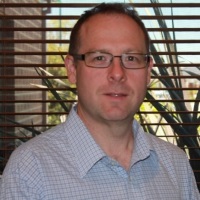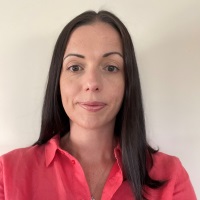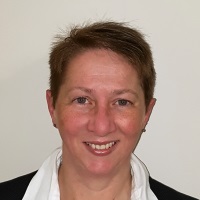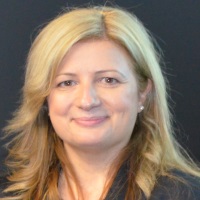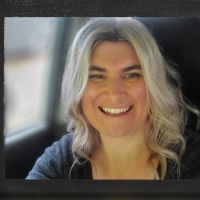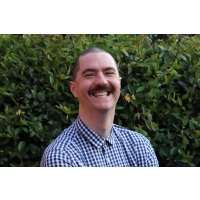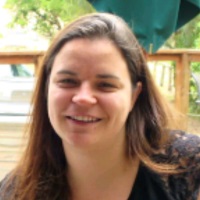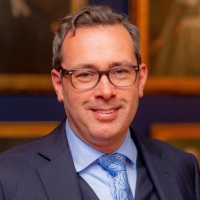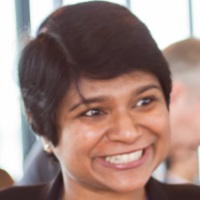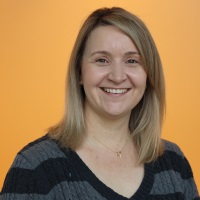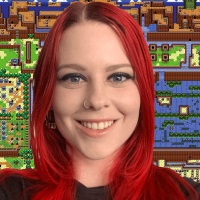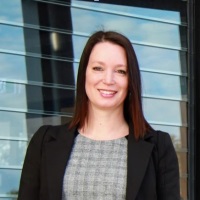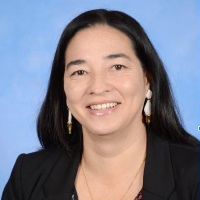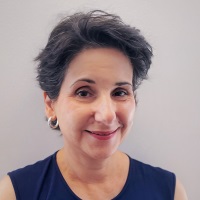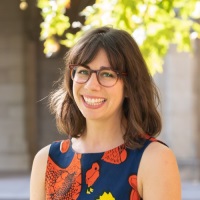Department of Education and Training Victoria On-Demand
STEM students from Melbourne Girls' College will open the department’s EduTECH program with an exploration of how education and technology have developed over 150 years, since the Education Act 1872. Join us for a walk down memory lane before celebrating the wide range of learning opportunities available to students today and imagining the future of education and technology in this inspiring presentation. Discover how a collaborative Human Centred Design Thinking program engaged students, schools and the community and allowed First Nations students to connect to their culture through innovative technology. The presentation will outline the development process, the power of working collaboratively and building on existing departmental activities and projects. Finally, we will showcase the outcomes of this project including the development of peer networks, increased student engagement in school and the blending of indigenous stories and culture with technology to create community focused projects. Paperless “anything” has been talked about for years, though it is often seen but never really observed in real life. It can be extra challenging as a teacher to achieve this. Hear from Digital Technology teacher Janene Watt about how she implemented Microsoft technologies in a secondary environment to create a paperless classroom. Janene will delve into how she uses Microsoft Classroom Apps including Edge, Teams, Word, Sway and PowerPoint, Excel, Forms, One Note and Office.com. Attendees will walk away with: Inform your improvement initiatives by understanding how the design of places and spaces for innovation allows you to empower a learning community to take creative control of the future of learning. This showcase is an opportunity to understand how the thoughtful transformation of spaces across secondary and tertiary STEM environments creates an innovative platform for design thinking, STEM research, and entrepreneurship results in profound impacts on students’ futures. This presentation will touch on Brand Architects’ projects for Monash Tech School, Monash Maker Space, The Generator, and the upcoming Smart Manufacturing Hub. Soula, Mahaelia and David will demonstrate how a gaming platform such as Minecraft can be used to explore sustainable thinking and understand the sustainable practices and knowledge of our First Nations People of Victoria. Maria will share ideas and examples of what has worked in the STEM classroom with a particular focus on Year 3 to 6 students, using Google for Education Workspace tools to encourage independent learning. Discover how Ballarat Tech School engages students with Unreal Engine, an innovative and high-tech learning program in game design. Students utilise critical and creative thinking, personal and social reasoning and design thinking to create their very own game. The program has a major focus on STEM’s Technology and Mathematic disciplines, with students leveraging ever advancing technology to create amazing environments quickly and easily, while advanced users wanting to create interesting physics displays, custom game object behaviours and unique logic will flex their mathematics muscles to produce their desired outcomes. We know that technology has the ability to transform teaching, but are you utilising the digital tools available to you to deliver exceptional learning experiences? Hear from this panel of experts about the range of software available to Victorian Government schools and deep dive into the functionality and usability of programs including Education Perfect, Adobe, ClickView and Boardmaker. We know that technology has the ability to transform teaching, but are you utilising the digital tools available to you to deliver exceptional learning experiences? Hear from this panel of experts about the range of software available to Victorian Government schools and deep dive into the functionality and usability of programs including Education Perfect, Adobe, ClickView and Boardmaker. We know that technology has the ability to transform teaching, but are you utilising the digital tools available to you to deliver exceptional learning experiences? Hear from this panel of experts about the range of software available to Victorian Government schools and deep dive into the functionality and usability of programs including Education Perfect, Adobe, ClickView and Boardmaker.Department of Education and Training Theatre, Wednesday 10 August 2022
150 Years of Public Education and technology
![]()
Using human centred design thinking and innovative technology to engage First Nations students
A paperless classroom: implementing Microsoft technologies in secondary education
![]()
Designing innovative spaces
![]()
Minecraft - The STEM and sustainable practices of the First Nations people
Using Google to encourage independent learners in the STEM classroom
Learning through game design: An introduction to Unreal Engine
![]()
Software for connected learners panel
Building powerful industry partnerships to engage women and girls in STEAM pathways. The Bendigo Tech School Girls in STEAM Electric Car Project is an aspirational community enterprise initiative designed to encourage young women to explore engineering and trades pathways. Over 24 months, the students are restoring and converting a Range Rover Classic into a Tesla powered 4WD with guidance from a range of industry partners including Jaunt Motors. This mini master class will unpack the ‘secret sauce’ of creating impactful industry/education partnerships. This presentation will help enable educators to unlock the potential of publicly available scientific databases and online tools for student-centred investigations. Since the publication of the human genome, the digital store of biological data has grown explosively. These databases are the foundation of the contemporary field of bioinformatics. With some basic training, these publicly accessible databases are a rich resource for school students to conduct their own life-sciences research. Bring your device along! We’ll explore the interaction between coronavirus spike protein and its human receptor protein, presenting examples of data mining and online analysis that can be used by students on their devices at home or in the classroom. Dr Kulari and Leanne will present an overview of KIOSC’s TrashBot program, highlighting the importance of inspiring, empowering and equipping students with skills to become future Change Makers with the capability to contribute to future solutions for Global Sustainability. The opportunity to design and create an innovative, automated, sustainable waste management solution provided students with access to technology and skill development that they would not have ordinarily had as part of their regular curriculum. The design process enabled students to develop technical skills required in emerging employment markets in STEM, such as 3D printing, programming, artificial intelligence, and machine learning. They also learnt about potential opportunities and tertiary studies that they may aspire to in the future. Throughout the program, KIOSC staff guided and supported local and regional schools to implement the TrashBot program, using blended, collaborative and personalised learning pedagogies in synchronous sessions, and provided schools with resources via Canvas. This initiative aligns closely with Swinburne’s Horizon 2025 Strategic Plan by addressing the institutional goal of becoming a leader in blended learning and the vision to bring people and technology together to build a better world. Gaming is a powerful tool for social learning, but educators and allied health professionals want to know how they can create the optimal conditions for learning. This presentation introduces a program that combines video modelling and video review with the supported play of cooperative video games to help our students develop essential collaborative skills. Sharing insights from their research and professional practice, Dr Matthew Harrison and Jess Rowlings detail practical structures and strategies to run engaging and effective sessions for all students. Importantly, this program is neurodiverse-positive and celebrates the differences of autism, ADHD and other neurological conditions. Sharon and Carolyn will share how Mount Waverley Heights Primary School (MWHPS) prepared teachers and students to thrive in a digital age. Their journey explores what meaningful digital literacy design can look like from a primary school perspective. MWHPS has been at the forefront of cutting-edge practices. As the first Datacom Beacon School and a Google Reference school, Level 1 Google Educator Certification is the minimum level held by teaching staff with many staff members achieving higher levels of training (including Educator Level 2, Certified Innovator, Certified Trainer or Coach). Sharon and Carolyn continuously envision the school’s work as progressive and are committed to equipping students to live and work successfully in the 21st Century, through a future focused learning approach. In this fast-paced session you will play a game that can be adapted to any curriculum; Explore how games can be a tool for assessment; Learn how games can be support SEL; And consider how designing games supports student agency and voice. Introducing 600,000m2 of Melbourne’s CBD rendered in Minecraft! Discover this amazing collaboration between the Victorian Department of Education and Training and the Metro Tunnel Project and how you can use it to introduce your students to the challenges of a major city shaping infrastructure project. The Indigenous STEM schools program is a unique opportunity for students from secondary schools in Melbourne’s West to visit Science Gallery Melbourne at the University of Melbourne and experience a full-day excursion investigating Indigenous STEM knowledge and perspectives, led and developed by Indigenous Facilitators. In this workshop teachers will get hands on with materials and get insights into how this peer-to-peer learning program was developed with Elders, Indigenous Curators and Indigenous Facilitators to facilitate learning about Aboriginal knowledge, science, perspectives and technological innovations. Creativity is a challenging area of the curriculum to cover; how do you teach students to think creatively when it is such a hard skill to learn? While Janene may not have all the answers, as a Digital Tech teacher she has run a few design thinking projects and other creative challenges, and wants to inspire teachers to try out some of their own ideas. Janene will delve into how she uses various tools including Adobe Express to inspire creativity in the classroom. Attendees will walk away with an: Discover how escape rooms can be used in the classroom to assess 21st century skills (collaboration, communication, and critical thinking). The presentation will also include tips and tricks for creating real-world and virtual escape rooms. Department of Education and Training Theatre, Thursday 11 August 2022
Bendigo Tech School girls in STEAM electric car project
Leveraging big data for student inquiry
![]()
Smart waste management with technology
![]()
Using Video Games to Level Up Collaboration for Students
![]()
Leading a digital school
Gaming and Education
Welcome to Mini Melbourne
![]()
Indigenous led learning programs - Science Gallery Melbourne’s approach to developing Indigenous STEM programs
Using tech to encourage creativity in secondary education
Breaking out - using escape rooms to assess 21st century skills
Contact us
Sponsorship Enquiries
arron.penman@terrapinn.com
pascal.ibrahim@terrapinn.com
Marketing Enquiries:
rita.nehme@terrapinn.com
